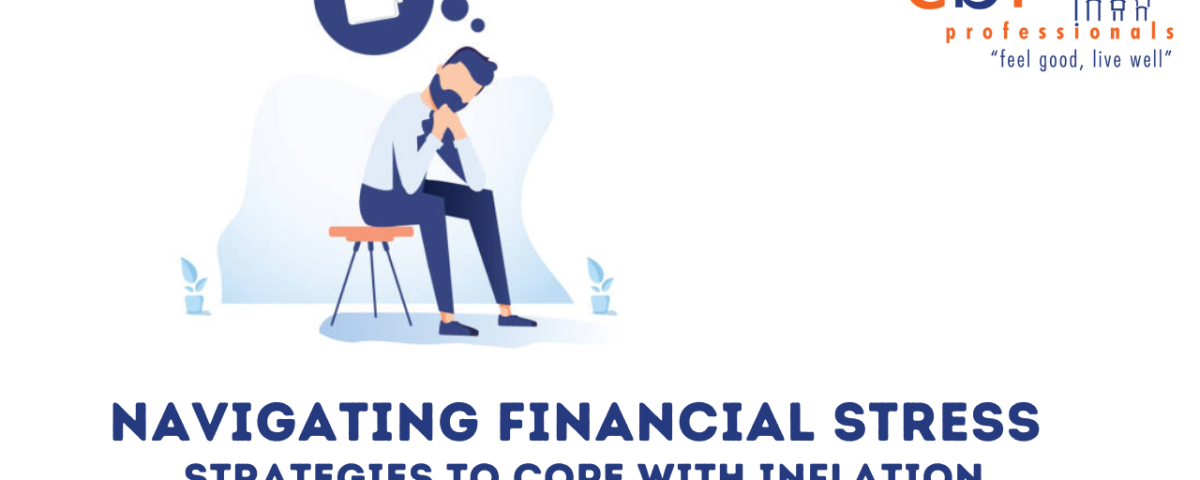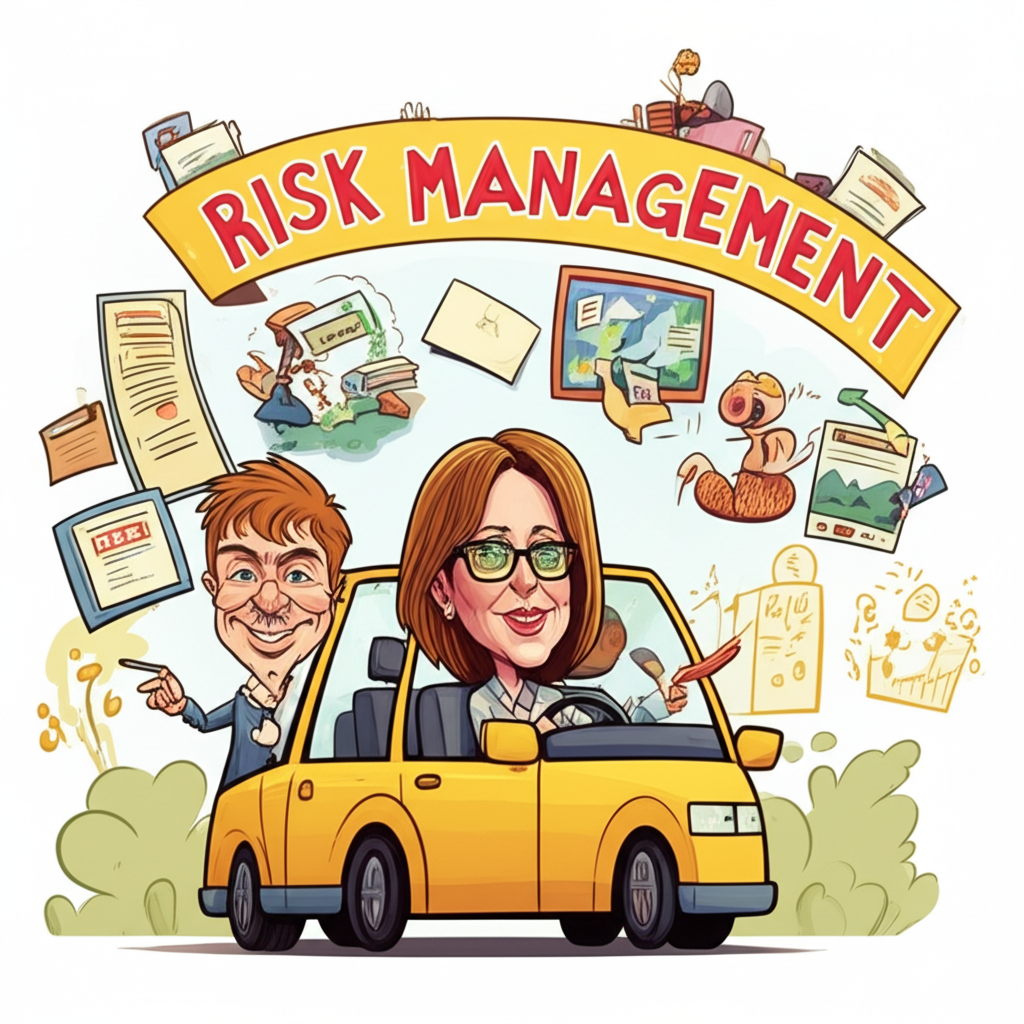
Navigating Financial Stress and Anxiety: A Comprehensive Guide to Finding Peace with Your Money
In today’s fast-paced world, it’s increasingly common to feel the weight of financial worries. From rising living costs and unexpected expenses to the looming shadow of debt or job insecurity, financial stress and anxiety can cast a long shadow over our lives. If you’ve ever found yourself lying awake at night, mind racing with money concerns, you’re not alone. Millions of people worldwide grapple with these feelings, and it’s a perfectly normal human response to financial pressure.
This comprehensive guide is designed to help you understand, address, and ultimately overcome financial stress and anxiety. We’ll explore what these feelings are, their impact on your life, and provide actionable strategies – both practical and emotional – to help you regain control and find greater peace with your money.
Understanding Financial Stress and Anxiety
Before we dive into solutions, let’s clarify what financial stress and anxiety truly mean and how they manifest.
What is Financial Stress?
Financial stress is the emotional and psychological strain caused by money worries. It often arises when your financial resources feel insufficient to meet your needs or desires, or when you face uncertainty about your financial future. It’s a direct response to a perceived threat or pressure related to your financial situation.
What is Financial Anxiety?
Financial anxiety is a more persistent and often debilitating form of financial stress. It involves excessive worry, fear, and apprehension about money, even when there might not be an immediate crisis. It can lead to avoidance behaviors, constant rumination, and a pervasive sense of dread related to finances.
Common Triggers and Causes
Financial stress and anxiety can stem from a multitude of sources, including:
- Debt: Credit card debt, student loans, mortgages, car loans – the sheer volume or high interest rates can feel overwhelming.
- Low Income/Income Instability: Not earning enough to cover expenses, or having an unpredictable income stream (e.g., freelance work).
- Job Insecurity/Unemployment: The fear of losing a job or the reality of being out of work.
- Unexpected Expenses: Medical emergencies, car repairs, home repairs – costs that weren’t budgeted for.
- Lack of Savings/Emergency Fund: No financial cushion to fall back on during tough times.
- Inflation and Rising Costs: When the cost of living outpaces income growth, making everyday expenses feel heavier.
- Poor Financial Habits: Overspending, impulse buying, not tracking money.
- Financial Illiteracy: Not understanding basic money management, investing, or debt strategies.
- Social Pressure/Comparison: Feeling the need to keep up with others or societal expectations regarding wealth and possessions.
- Major Life Changes: Divorce, having children, retirement, a new business venture – all can bring financial uncertainty.
The Impact of Financial Stress on Your Life
The effects of financial stress and anxiety aren’t just limited to your bank account. They can permeate every aspect of your well-being:
- Mental and Emotional Health:
- Increased anxiety, worry, and panic attacks.
- Depression, sadness, and hopelessness.
- Irritability, anger, and mood swings.
- Difficulty concentrating and making decisions.
- Feelings of shame, guilt, or embarrassment.
- Social isolation (avoiding friends or activities that cost money).
- Physical Health:
- Sleep disturbances (insomnia, restless sleep).
- Headaches and migraines.
- Digestive problems (stomach aches, IBS).
- Muscle tension and chronic pain.
- Weakened immune system.
- Increased risk of high blood pressure and heart problems.
- Relationships:
- Arguments with partners, family, or friends about money.
- Lack of trust or transparency in financial matters.
- Avoidance of conversations about finances.
- Strain on romantic relationships, sometimes leading to separation.
- Productivity and Performance:
- Decreased focus at work or school.
- Lower job performance.
- Missed opportunities for advancement.
Recognizing these symptoms is the first step toward taking action. Remember, you’re not alone, and there are concrete steps you can take to alleviate this burden.
Practical Strategies to Tackle Financial Stress
While the emotional toll of financial stress is significant, addressing the root causes often involves practical steps. These strategies focus on gaining clarity, building stability, and taking control of your financial situation.
1. Get Clear on Your Finances: The Foundation
You can’t solve a problem you don’t fully understand. The first step is to get a clear, honest picture of your current financial reality.
- Create a Budget (and Stick to It!): This is the cornerstone of financial control.
- Track Your Income: List all sources of money coming in each month.
- Track Your Expenses: For at least a month, meticulously record everything you spend. Use an app, a spreadsheet, or a notebook. Categorize expenses (housing, food, transportation, entertainment, etc.).
- Identify Fixed vs. Variable Costs: Fixed costs are the same every month (rent, loan payments). Variable costs fluctuate (groceries, utilities, dining out).
- Allocate Your Money: Assign a specific amount of money to each spending category. Many people use the 50/30/20 rule (50% needs, 30% wants, 20% savings/debt repayment) as a starting point.
- Review and Adjust Regularly: Your budget isn’t set in stone. Life changes, so review it monthly or quarterly and make necessary adjustments.
- Know Your Debts: List all your debts, including the creditor, the outstanding balance, the interest rate, and the minimum monthly payment. This helps you understand the full scope of what you owe.
- Check Your Credit Score: Your credit score impacts everything from loan approvals to insurance rates. Get a free copy of your credit report from annualcreditreport.com to check for errors and understand your standing.
2. Build a Financial Safety Net
One of the biggest drivers of financial anxiety is the fear of the unknown. An emergency fund can significantly reduce this fear.
- Start an Emergency Fund: This is a dedicated savings account for unexpected expenses (job loss, medical emergency, major car repair).
- Goal: Aim for at least 3-6 months’ worth of essential living expenses. Start small if that seems daunting – even $500-$1,000 can make a huge difference in an emergency.
- How to Build It: Set up automatic transfers from your checking to your savings account each payday. Treat it like a non-negotiable bill.
- Review Your Insurance Coverage: Adequate insurance (health, auto, home/renters, life, disability) acts as a financial safety net, protecting you from catastrophic losses that could derail your financial stability. Make sure your coverage is appropriate for your current situation.
3. Tackle Debt Strategically
Debt can feel like an insurmountable mountain, but with a plan, you can chip away at it.
- Prioritize High-Interest Debt: Credit card debt often carries the highest interest rates, making it the most expensive. Focus on paying this down first.
- Choose a Repayment Strategy:
- Debt Snowball: Pay the minimum on all debts except the smallest one, which you aggressively pay off. Once that’s done, take the money you were paying on it and apply it to the next smallest debt. This builds momentum and motivation.
- Debt Avalanche: Pay the minimum on all debts except the one with the highest interest rate, which you aggressively pay off. This saves you the most money on interest in the long run.
- Consider Debt Consolidation or Counseling: If you have multiple high-interest debts, a debt consolidation loan (with a lower interest rate) or working with a reputable non-profit credit counseling agency can simplify payments and create a clearer path to becoming debt-free.
4. Set Realistic Financial Goals
Having clear, achievable financial goals can transform vague worries into actionable plans.
- Define Your Goals: What do you want your money to do for you? (e.g., pay off debt, buy a house, save for retirement, go on a trip).
- Make Them SMART:
- Specific: "Save for a down payment" is better than "save money."
- Measurable: "Save $10,000" is better than "save a lot."
- Achievable: Is it realistic given your income and expenses?
- Relevant: Does it align with your values and priorities?
- Time-bound: Set a deadline (e.g., "by December 2025").
- Break Down Big Goals: A large goal can be overwhelming. Break it into smaller, manageable steps. Saving $24,000 for a down payment over two years means saving $1,000 a month.
5. Boost Your Financial Literacy
Knowledge is power, especially when it comes to your money. The more you understand, the less intimidating finances become.
- Read Books and Articles: There are countless resources on budgeting, investing, debt management, and financial planning.
- Take Online Courses: Many reputable organizations offer free or affordable courses on personal finance.
- Listen to Podcasts: Find podcasts that break down complex financial topics into easy-to-understand segments.
- Follow Reputable Financial Experts: Be selective about who you get advice from. Look for certified financial planners (CFPs) or accredited financial counselors (AFCs).
Mental & Emotional Strategies for Coping
While practical steps are crucial, addressing the emotional side of financial stress is equally important. These strategies help you manage the anxiety itself, regardless of your current financial situation.
1. Acknowledge and Validate Your Feelings
Suppressing feelings of stress and anxiety only makes them worse.
- Give Yourself Permission to Feel: It’s okay to be worried, scared, or frustrated. These are natural responses to difficult situations.
- Practice Self-Compassion: Don’t beat yourself up for past financial mistakes or for feeling stressed now. Treat yourself with the same kindness you’d offer a friend.
- Journal Your Thoughts: Writing down your financial worries can help you identify patterns, gain perspective, and release some of the emotional burden.
2. Practice Self-Care
When you’re under financial pressure, self-care often feels like a luxury you can’t afford. However, it’s essential for maintaining your mental resilience.
- Mindfulness and Meditation: Even 5-10 minutes a day can help calm a racing mind. Focus on your breath, observe your thoughts without judgment, or use guided meditations.
- Regular Exercise: Physical activity is a powerful stress reliever. You don’t need a gym membership; a brisk walk, jogging, or home workouts are effective.
- Prioritize Sleep: Lack of sleep exacerbates anxiety. Aim for 7-9 hours of quality sleep per night. Establish a consistent sleep schedule.
- Healthy Eating: Fueling your body with nutritious food can positively impact your mood and energy levels.
- Engage in Hobbies (Even Free Ones): Do things you enjoy that take your mind off money, like reading, spending time in nature, listening to music, or connecting with friends.
3. Communicate Openly
Money is often a taboo topic, leading to isolation and increased anxiety. Breaking the silence can be incredibly liberating.
- Talk to Your Partner/Family: If you share finances, open and honest communication is vital. Work together on a budget, set goals collaboratively, and support each other.
- Confide in a Trusted Friend: Sometimes, just talking about your worries with someone who listens can provide immense relief. They might not offer solutions, but empathy goes a long way.
- Join a Support Group: Connecting with others who share similar struggles can make you feel less alone and provide valuable insights.
4. Seek Professional Help When Needed
There’s no shame in asking for help. Professionals can offer specialized guidance and support.
- Financial Advisor/Counselor: If you feel overwhelmed by debt, need help creating a financial plan, or want investment advice, a certified financial planner (CFP) or accredited financial counselor (AFC) can provide objective, personalized guidance.
- Therapist/Counselor: If financial stress is significantly impacting your mental health (e.g., leading to depression, severe anxiety, panic attacks, relationship breakdowns), a mental health professional can help you develop coping mechanisms, process emotions, and address underlying issues. Cognitive Behavioral Therapy (CBT) can be particularly effective for anxiety.
5. Focus on What You Can Control
Much of financial anxiety comes from worrying about things outside your immediate control (e.g., the economy, inflation rates, global events).
- Identify Controllables: Focus your energy on things you can influence: your budget, your spending habits, how much you save, seeking new income opportunities, or learning new skills.
- Practice Acceptance: Accept that some things are beyond your control. This doesn’t mean you give up, but it means you don’t drain your energy worrying about what you can’t change.
- Limit Exposure to Negative News: While staying informed is good, constant exposure to alarming financial news can fuel anxiety. Be mindful of your media consumption.
Maintaining Long-Term Financial Well-being
Navigating financial stress isn’t a one-time fix; it’s an ongoing journey. Building long-term financial well-being involves continuous learning, adaptation, and self-awareness.
- Regular Financial Check-ins: Make it a habit to review your budget, savings, and debts monthly or quarterly. Adjust as life changes.
- Educate Yourself Continuously: The financial landscape evolves. Stay informed about new strategies, investment options, and economic trends.
- Celebrate Small Wins: Acknowledging progress, no matter how small, can boost your motivation and reinforce positive financial habits. Paid off a credit card? Saved an extra $50? Celebrate it!
- Be Flexible: Life throws curveballs. Be prepared to adjust your financial plans when unexpected events occur.
- Define Your Own Success: Don’t compare your financial journey to others. What truly constitutes "financial peace" and "well-being" is unique to you.
Conclusion: Empowering Yourself Towards Financial Peace
Financial stress and anxiety are challenging, but they are not insurmountable. By combining practical financial management strategies with proactive mental and emotional self-care, you can significantly reduce their grip on your life.
Remember, the goal isn’t necessarily to become wealthy overnight, but to feel more secure, confident, and in control of your financial destiny. It’s about building a healthier relationship with money, one step at a time. Start small, be consistent, and don’t hesitate to seek help when you need it. You have the power to navigate these challenges and find greater peace with your money, leading to a more fulfilling and less anxious life.
Disclaimer: This article provides general information and guidance. It is not intended as financial, legal, or psychological advice. Always consult with a qualified financial professional, credit counselor, or mental health expert for advice tailored to your specific situation.




Post Comment